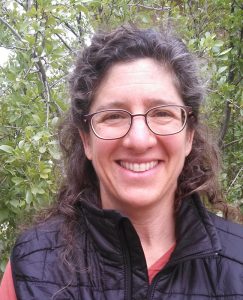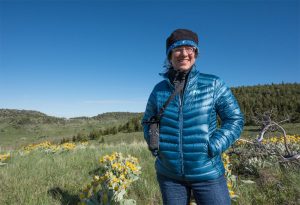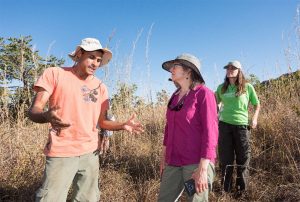When: Friday, June 21 2019
Time: 12:00 – 1:00pm (Eastern Daylight Time (EDT), UTC-4)
Title: “How Standards Can Improve Implementation of Global Restoration Initiatives”
Presenter: Bethanie Walder
Short Bio: Bethanie Walder joined the Society for Ecological Restoration as Executive Director in September 2015 and has more than 25 years of experience in environmental conservation, restoration, and education.
Prior to joining SER, Bethanie worked for U.S.-based conservation organizations, where she led several highly successful regional and national conservation and restoration campaigns, largely focused on U.S. federal lands management. Bethanie has also worked as an organizational development, strategic planning, and natural resources management consultant. She was a founding member of several coalitions and non-governmental organizations including Women’s Voices for the Earth and the Washington Watershed Restoration Initiative. She is responsible for helping guide SER’s overall work to achieve its mission of advancing the science, practice, and policy of ecological restoration.
Bethanie has an undergraduate degree in Political Science and International Studies from Duke University and a Master of Science in Environmental Studies from the University of Montana. She lives, works, and plays in Missoula, Montana.
Abstract: Ecological restoration is increasingly promoted and funded as an important solution for environmental degradation and climate change throughout the world. When implemented effectively, it can enhance biodiversity, deliver ecosystem services, benefit people and local communities, and support climate change mitigation, resilience, and adaptation. Although many recent restoration projects achieve their intended goals, a significant number of projects also fail—due to a variety of factors ranging from ineffective project design and implementation, to the complexities of ecosystem dynamics, to the uncertainties of climate change. Restoration is also defined in different ways by different entities.
In 2016, the Society for Ecological Restoration (SER) published International Standards for the Practice of Ecological Restoration to provide a framework for improving the effectiveness and implementation of restoration projects on the ground from both ecological and social perspectives. This year, SER will be releasing an updated version of these standards that is based on extensive international consultation. The revised International Standards articulate eight core principles for ecological restoration, incorporate concepts related to traditional ecological knowledge, describe the process of creating reference models for restoration, and introduce a social progress wheel to accompany the existing ecological recovery wheel, enabling practitioners and decision-makers to measure both the ecological and social benefits of restoration.
The Standards also identify the relationship between ecological restoration and other restorative activities through the “restorative continuum.” As the UN prepares to implement its newly declared UN Decade on Ecosystem Restoration, the SER International Standards offer a framework to help individual restoration projects and global restoration initiatives achieve their intended goals, while addressing the many challenges of effective implementation, including ecosystem complexity, climate change, ineffective design and implementation, and the trade-offs between social priorities and biodiversity. These International Standards are aspirational and intended to provide and promote best practices for restoration that will improve outcomes on the ground.
>> Register Now




